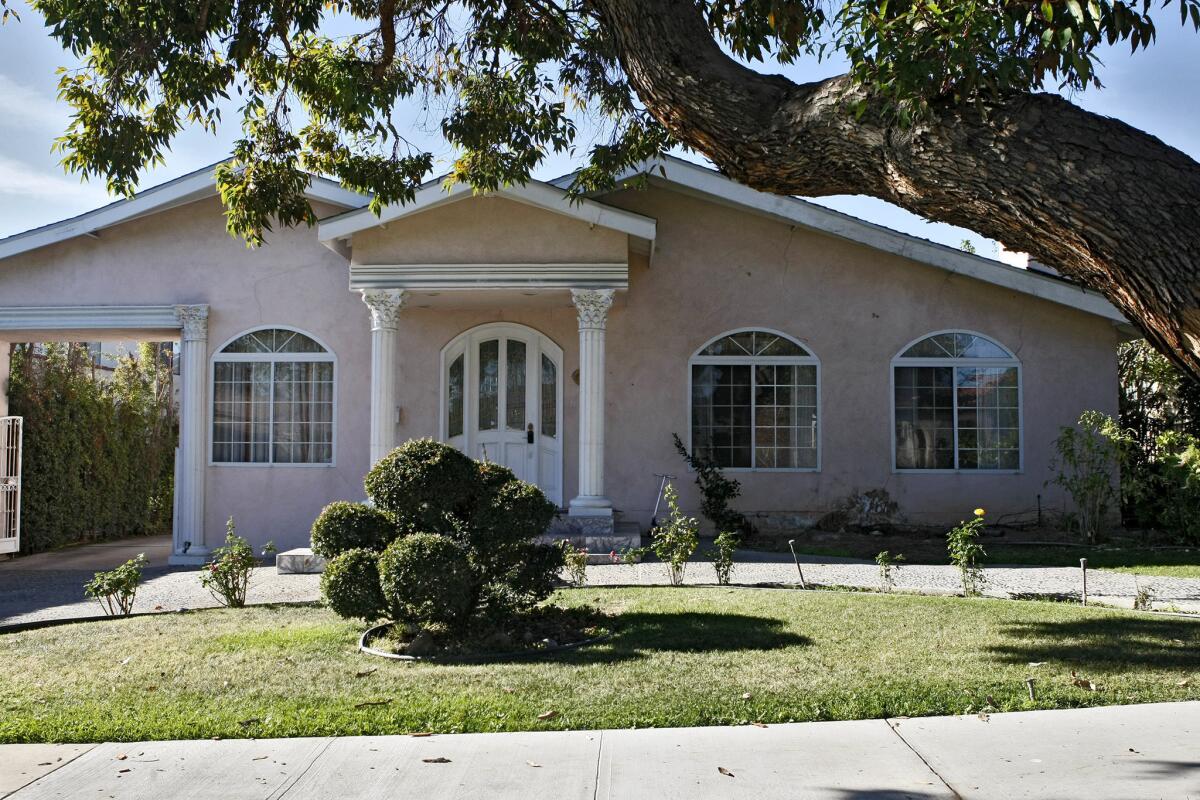Glendale could implement Airbnb rules this fall

- Share via
Glendale is getting closer to changing the way local Airbnb and other short-term rental hosts operate in the city.
Vacations rentals — where the host isn’t present during a guest’s stay — would be banned, according to an ordinance proposed during a Planning Commission meeting on Wednesday. Home sharing — where the host is present during a stay of 30 days or less — would see additional regulations, including a tax component and a rental cap of 180 days per year.
The city’s planning commissioners voted unanimously to recommend the ordinance.
City Council members are expected to vote on the proposed ordinance in September. It’s a move that follows on the heels of Los Angeles’ implementation earlier this month of home-sharing regulations that were years in the making.
Currently, Glendale has no regulations regarding short-term home and apartment rentals booked through popular sites such as Airbnb and VRBO.
As of 2016, there were an estimated 450 short-term rentals in the city, according to Yvette Neukian, senior assistant city attorney, who helped draft the proposed rules. She estimated that number has only risen since then.
In December 2016, City Council members delayed implementing short-term rental regulations because several relevant lawsuits involving Airbnb and other home-sharing sites were ongoing, according to a staff report. When an update on those suits was brought before council members in October 2018, they asked staff to draft an ordinance with specific directions.
During the October meeting, council members’ discussion echoed common pros and cons related to short-term rentals: Several members focused on the nuisance issues the vacation rentals were creating — including noise, late-night parties and theft.
Others pointed out that units that could be occupied by long-term residents were being gobbled up as vacation rentals — which shrinks the housing stock and contributes to rising rents.
On the other hand, some hosts say they rely on the income they receive from short-term rentals to get by.
Under the proposed regulations, Glendale residents planning to rent out a room in their house or apartment (with landlord approval) would need to register for something similar to a business license through the city, Glendale’s senior planner Chris Baghdikian said during the recent planning commission meeting.
Those residents would then be required to report their earnings and pay what’s known as a transient-occupancy tax — the same tax hotel operators pay.
Properties with accessory-dwelling units, often called granny flats, cannot participate in any form of short-term rentals, according to Baghdikian.
If the ordinance passes, those operating vacation rentals would have six months to stop the practice. The same amount of time would be given for those interested in or operating home shares to obtain a license.
Following that period, the city could enforce its ordinance via a combination of citations and legal action, according to Neukian.
There’s still some uncertainty around enforcement; the city could rely on complaints from neighbors or be more proactive by hiring someone to monitor a home-sharing site, Neukian said. In either case, the city might need to hire additional inspectors, she added.
Commissioner Greg Astorian voiced concerns about the city’s ability to collect taxes.
Similar to how the city works with hotels, officials often “take their word for it,” Neukian said.
“We have to rely on the reliability of their documentation,” she said, adding that the city could audit both hotels and home-sharing operations.
Some cities, including Pasadena, have forged agreements requiring Airbnb and similar companies to collect taxes on a city’s behalf. Glendale needs to pass its ordinance before it can seek such an agreement, Neukian said.
Blessy Briscoe, who spoke during the public-comment period of the meeting, asked whether or not one of two units in a duplex owned by the same person could be rented out.
Kristen Asp, Glendale’s principal planner, said it would not be allowed. Still, the question stirred enough discussion that Astorian said staff needs to “dig a little bit deeper on this issue because it would generate some problems as we go forward.” Commissioner Chang Lee agreed clarification was needed.
